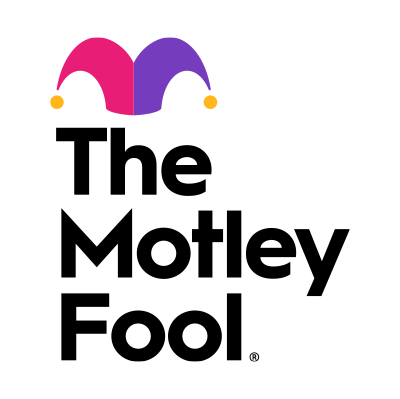- Joined
- Dec 13, 2015
- Messages
- 9,594
- Reaction score
- 2,072
- Location
- France
- Gender
- Male
- Political Leaning
- Centrist
HOUSE OF CARDS
Ridiculous, yes! The Swedes are generally a highly intelligent people.
And enough of this Capitalism-shat. It is what it is! Quite simply the use of capital as an intermediary of exchange within a functional economy. That it has generated billionaires in the US is not the fault of "capitalism" (which was indeed the mechanism) but of a singular party that brought down drastically upper income taxation post-Kennedy in the US. See Federal Tax Rate History below

If you think that Capitalism was a "dominator" element to any economy - as was considered by the Communist faction in Europe before WW2 - then you got-it-wrong! Subsequent reconstruction of a ruined German economy to become a first-rate European-economy today happened within a decade after the war ended. And it happened under both Socialist and Rightist party-heads.
It was typically Socialist-leaning parties in Germany that were winning the elections of the Head-of-state in post-war Germany. (Let's not forget that post-WW2 the Russian Army also occupied Berlin at the time and was just a small jump from the border with Poland then a Communist entity. (Which has since matured and other parties are finding "room" with the German people for their "points-of-view".)
And to my eyes Sweden has not changed one-iota in its attachment to Managed Capitalism to maintain an economy that has a very high content of "social-privileges" managed by the Swedish government". It's uniquely in the US that Capitalism now dominates the Right so much its main-party goes haywire when it thinks that any threat appears (even at the state-levels) that might alter its political-dominance.
And let's get this straight:
*The American people still think - now some three-quarters of a century AFTER WW2 - that Communism dominates in Eastern Europe. Which is a colossal mistake. What is happening there is the domination of one-man rule in Eastern-European states and Russia. They cannot relent their grasp on one-man rule because the present heads-of-state are scared shatless of the personal consequences that might happen.
*In general, throughout their remaining Russian-oriented "colonies" in the east, most would like to approach the European Union to better their economies. Because that is where the Demand is for cheaper products especially farm-produced!
Putin is soooo detested by the general-public, which is the reason he is sticking to power. Because those that became automatic millionaires overnight (including Putin himself*) are scared shatless that with a change in government (elected by the people) they might go to jail as well for their personal exploitation of government owned properties/businesses in the past that made them millionaires ....
*His daughter bought a very expensive farm not far from Bordeaux in France. (See Reuters here.) Why did she do that? To have "somewhere else to go" in case her father's house-of-cards came tumbling down.
A Swedish socialist high school teacher told me that he objected to mandatory accounting on the grounds that the math would make Capitalism seem logical to the students.
Ridiculous! Of course the capitalists would object to the competition. The peons must be kept ignorant.
Ridiculous, yes! The Swedes are generally a highly intelligent people.
And enough of this Capitalism-shat. It is what it is! Quite simply the use of capital as an intermediary of exchange within a functional economy. That it has generated billionaires in the US is not the fault of "capitalism" (which was indeed the mechanism) but of a singular party that brought down drastically upper income taxation post-Kennedy in the US. See Federal Tax Rate History below
If you think that Capitalism was a "dominator" element to any economy - as was considered by the Communist faction in Europe before WW2 - then you got-it-wrong! Subsequent reconstruction of a ruined German economy to become a first-rate European-economy today happened within a decade after the war ended. And it happened under both Socialist and Rightist party-heads.
It was typically Socialist-leaning parties in Germany that were winning the elections of the Head-of-state in post-war Germany. (Let's not forget that post-WW2 the Russian Army also occupied Berlin at the time and was just a small jump from the border with Poland then a Communist entity. (Which has since matured and other parties are finding "room" with the German people for their "points-of-view".)
And to my eyes Sweden has not changed one-iota in its attachment to Managed Capitalism to maintain an economy that has a very high content of "social-privileges" managed by the Swedish government". It's uniquely in the US that Capitalism now dominates the Right so much its main-party goes haywire when it thinks that any threat appears (even at the state-levels) that might alter its political-dominance.
And let's get this straight:
*The American people still think - now some three-quarters of a century AFTER WW2 - that Communism dominates in Eastern Europe. Which is a colossal mistake. What is happening there is the domination of one-man rule in Eastern-European states and Russia. They cannot relent their grasp on one-man rule because the present heads-of-state are scared shatless of the personal consequences that might happen.
*In general, throughout their remaining Russian-oriented "colonies" in the east, most would like to approach the European Union to better their economies. Because that is where the Demand is for cheaper products especially farm-produced!
Putin is soooo detested by the general-public, which is the reason he is sticking to power. Because those that became automatic millionaires overnight (including Putin himself*) are scared shatless that with a change in government (elected by the people) they might go to jail as well for their personal exploitation of government owned properties/businesses in the past that made them millionaires ....
*His daughter bought a very expensive farm not far from Bordeaux in France. (See Reuters here.) Why did she do that? To have "somewhere else to go" in case her father's house-of-cards came tumbling down.





